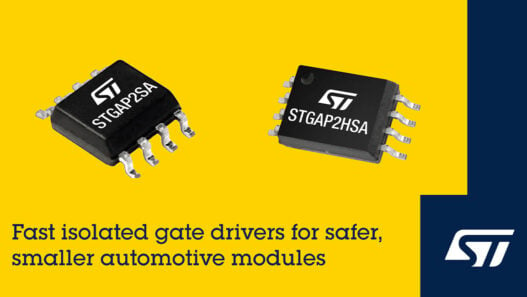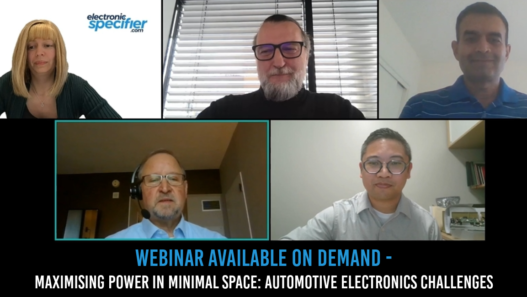“My interest in languages started very early. I was intrigued by the internal structure of natural languages … words like ‘consist, insist, persist’, there’s a structure. As a child, I thought that was magical.”
Over time, this intrigue deepened, and Hsiao found herself drawn to the differences between natural languages and artificial languages, which, she asserts “was a natural progression into AI.”
Looking to apply the knowledge she had gained whilst pursuing her PhD at MIT to real world challenges, Hsiao began her career at IBM before her timely move to Salesforce just as the company were pivoting towards using generative AI.
The role of an AI Architect
As an AI architect, Hsiao designs and oversees the construction of AI systems, ensuring that the technology advances in capability, that it is transparent, and it aligns with societal values. Through using her expertise in understanding language, Hsiao looks to ensure that there is a diversity of thought going into the AI.
“I was really drawn to Salesforce because of its focus on trust, culture, and values,” shares Hsiao. “My role as an AI architect includes AI evangelisation. A lot of it is about awareness of trusted, responsible, fair, and transparent AI, and that’s very important to the Salesforce strategy.
“I work a lot with customers, and that includes educational workshops. I speak at events and collaborate with other companies and our partners … I’m active with events like our Dreamforce World Tour in London, Women@Tech, which is primarily to bring about awareness, not just about what AI is, and what it can do, but how to use it responsibly so a company can get the best start on their journey.”
Hsiao also gets to innovate a lot in her role, including initiatives like hands on campfires which is a guide for companies starting their AI journey – part of her broader effort to make AI more accessible and understandable to a wider audience.
Pushing boundaries whilst maintaining values
Reflecting on her career, which has involved spearheading patents, publications, certifications, and awards/nominations, Hsiao shares: “If you look at IBM, they took on this ambitious mission to use AI to help recommend cancer treatment options, and I’m proud of that. I spearheaded the medical NLP efforts there.
However, Hsiao believes that her most significant contribution to the field of AI today is less quantifiable: “Ultimately, I think my greatest achievement to date is about pushing boundaries whilst maintaining my personal values. When I started with AI, it wasn’t a well understood field and there were very few women in the space. I’ve been very fortunate that I get to blaze my own trails.
“I come from a very traditional family and culture. Women didn’t really have a voice. We weren’t even on the family tree until we got married. So, if you don’t get married, you almost don’t exist – which I thought was very curious. I was very fortunate though and through education, scholarships, and job opportunities, I was able to carve out my own path – and I think, if that’s something that can inspire more women to go into AI and follow their dreams, to me, that’s probably the more meaningful contribution.”
AI for good
Using AI for good and the betterment of society is something that Hsiao feels passionately about, and using it responsibly is especially important.
“To me, ultimately, AI for good means using AI to democratise access to knowledge and skills.
“Just like any technology, especially when it’s new, we need to use AI responsibly and put in guardrails to prevent it from being used to discriminate or harm, whether that’s intentionally or through lack of proper oversight. This is especially important when we’re using AI in decision making processes.”
Traditionally, the systems that are seeped into society are from a male perspective, which ipso facto, means data of all kinds has been based on input from a certain type of person. But what is clear, and what is now being recognised, is that humankind is vast and various, just like our DNA is unique, so too are our perceptions, our lived experiences, and our genetic makeup.
“If traditionally men have been hired into certain positions, and you’re using existing data when training the AI, then there’s bias already in that decision making process,” says Hsiao, who also acknowledges that when it comes to AI, it is important to be proactive, and not reactive.
Being an everywoman AI award nominee
Hsiao’s passion, dedication, and innovation, plus her transparent and equitable approach has not gone unnoticed, and her nomination for an everywoman AI award showcases her dedication to using AI for positive societal impact and highlights her advocacy for responsible AI.
However, as much as the nomination is nice, for Hsiao it is all about the people she hopes to meet.
“[At the awards] I’m really looking forward to meeting and learning from other candidates … I’m looking forward to being inspired by their stories, their journeys, the variety of their experiences. I want to actively seek out ways to collaborate with them and start some joint initiatives, because … we can make bigger and more meaningful impact together.
“everywoman is such a great forum to both bring about awareness and allow for networking. I feel such gratitude for the opportunity to be there, and I am honoured to be a finalist.”
Hsiao hopes that the nomination will allow her to further encourage more diversity in the tech industry as she points out that a study from the Alan Turing Institute states that only 22% UK females are in AI data roles.
“We need more women role models in general, but also in the tech and AI space – this is a really good example of that. Sometimes seeing is believing. If you’ve seen it done, then you know you can do it too … We can always be better, right? and that percentage number needs to be improved for sure.”
A mentor comes in many guises
Hsiao advocates paying attention to those you find inspiring and those who you hope to become – once you know who they are, if you can, reach out and try to understand how, through coaching and guidance, you can get there as well.
Commenting on her journey, Hsiao points out that she feels very fortunate in terms of having mentors.
“Look out for the people around you, approach them, say to them ‘I’d like to learn more about this, can you mentor me, or can you point me in the right direction?’.
“Mentoring doesn’t have to be a formal thing … It can be found in small things. If you see somebody who’s struggling or somebody who has potential but is very quiet or underutilised, reach out to them, have a chat, figure out how you can help this person … being a mentor can be something just as simple as letting a person know that you’re there.
“I also participate in more formal events like Women in Tech. We hosted one at Salesforce and we invited lots of other companies. These events are important because a lot of emerging talent comes … they hear talks, ask questions, and they approach us and make connections that will help them grow.”
Levels of support and understanding
Reflecting on the progress that’s been made in the tech industry, Hsiao comments that, despite the lack of females, there has been an increase in representation in the field of AI since she started her career. But, if companies want to retain women in tech and perform better, there is still a lot more work to be done.
“There are a lot of additional things we can take into consideration. For example, women might learn differently, have a different schedule, be on a different journey. Sometimes mentoring can be more about emotional support than being aggressive and ambitious – because not everyone needs that. I think this also applies to people with different backgrounds. People learn differently. Some are more visual, some are more kinaesthetic, some like to figure things out on their own. Whether it’s learning modules or support systems that cater to different learning preferences at different stages of people’s life journeys and career journeys, we just need more.”
Not all bias is intentional
Hsiao recalls a challenging encounter at a tech conference early in her career, where a technical architect disregarded her questions, instead directing responses to her male colleague. Reflecting on this experience, Hsiao now perceives it as a form of unconscious bias.
“I don’t think we should assume the worst or that it’s intentional toward us. A lot of the time, they’re not even aware of it. It’s a blind spot. We all have blind spots, and when people point them out to us, we should work with that so it doesn’t happen again.”
Advice to women and young girls
“My advice for women and young girls looking to pursue a career in tech and AI is find an area you feel passionate about – not because it’s the hardest thing, not because it’s something that somebody told you to do, because 20 something years ago nobody would have advised me to go into AI – then work really hard at it. There are no shortcuts, you have to put the work in. Connect and learn from others. Look for role models or find a mentor. Strive to be a role model to others when you get to a stage that you can pay it forward, and always show up prepared.”
Talking about her very first mentor, a very successful career woman, Hsiao said she offered her the best advice she still holds true today, and with which she leaves us with.
“If you’re not good to yourself, you’re not good to anyone.”








